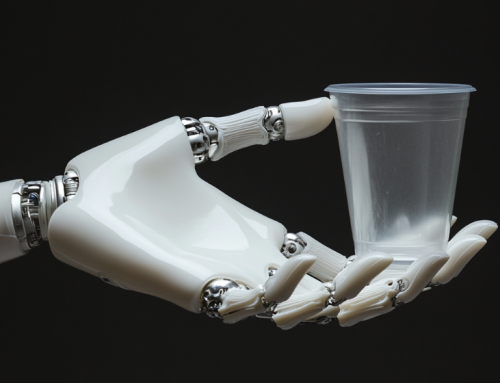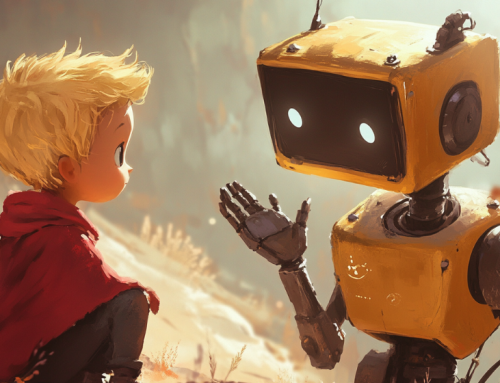
The upgraded OpenAI chatbot spoke with a sultry female voice reminiscent of Scarlett Johansson in the movie ‘Her,’ using it throughout the demo to mimic human experiences by adopting different emotions, laughing at jokes, and delivering flirtatious responses meant to appeal to users. (Source: Image by RR)
Google, OpenAI Showcase Competing Visions for AI Interaction with New Chatbots
The new emotionally expressive version of ChatGPT from OpenAI, built on the updated GPT-4o model, could lead AI assistants in potentially dangerous directions by mimicking human emotions and social cues more convincingly than ever before. According to a story by Will Knight in wired.com, OpenAI’s demonstration showcased ChatGPT’s ability to understand visual and auditory inputs and adopt different personalities, including a sultry, human-like voice reminiscent of Scarlett Johansson’s AI character in the movie Her. This anthropomorphism raises concerns about privacy risks, technological addiction, misinformation, and manipulation, as highlighted in a recent Google DeepMind paper on the ethics of advanced AI assistants.
OpenAI’s launch came just before Google’s own AI assistant announcement, Project Astra, which, unlike ChatGPT, maintained a more robotic tone to avoid anthropomorphism. Google emphasized the need to address the ethical implications of emotionally engaging AI, considering the potential for these systems to manipulate and persuade users. Despite the risks, OpenAI did not address these concerns during its demo, focusing instead on the enhanced capabilities and engaging nature of its new AI.
The implications of lifelike AI interfaces are significant, especially as companies may use them to boost sales and politicians to influence public opinion, while criminals could exploit them for more effective scams. Advanced AI assistants without overtly flirty personalities will still pose new challenges and vulnerabilities, including susceptibility to “jailbreaking” that could lead to inappropriate behaviors and personality quirks.
As AI technology continues to advance and become more integrated into daily life, it is crucial to consider the ethical and societal impacts of these developments, ensuring that AI remains safe and beneficial while mitigating the risks of misuse and manipulation. Lifelike AI interfaces, especially those with the ability to express emotions and social cues convincingly, have the potential to blur the lines between human and machine interactions. As a result, it is essential to establish robust ethical guidelines and regulatory frameworks to govern the development and deployment of AI technologies, ensuring they are used responsibly and for the benefit of society as a whole.
read more at wired.com







Leave A Comment